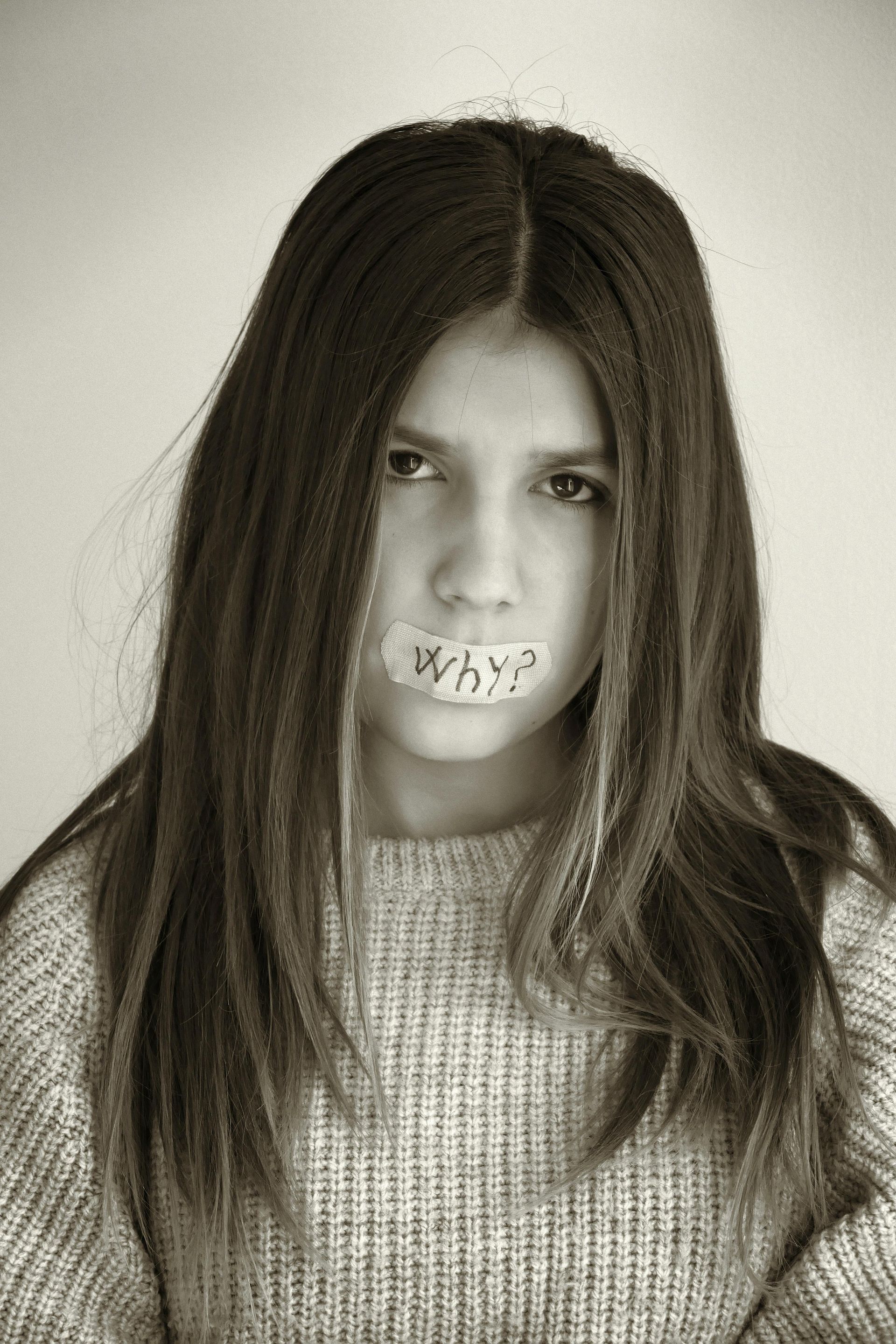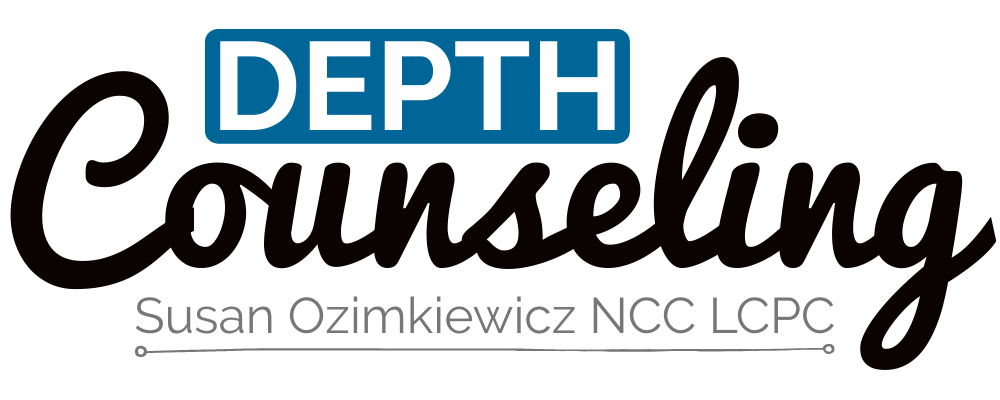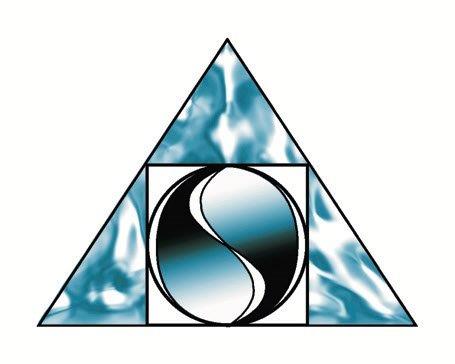Susan's Blog

There are words that people never used, or ever explained. The experience of sudden silence, the unspoken words, the unanswered questions that haunt your mind. The “why” lives and ruminates rent free in your head sometimes day and night looking for the answer to the “why” when he or she do not find an answer. People seek to understand and ...

I am not I. An imposter assumes a false or fraudulent identity. On occasion a client will tell me that he or she feels like a fraud, an imposter. The person will say I do not know myself or who I am. I am afraid I will be discovered and exposed. Someone who experiences and suffers with this anxiety is always on edge because at any moment their identity will be ...

January became the first month of the year about 700BC after the Roman King Pompilius added it to the calendar along with February. Janus is the ancient Roman god of beginnings and endings plus he is the god of gateways, gates, door and doorways. He had two faces one looking back and the other forward. As the opening line in T.S. Eliot’s East Coker said, “In my beginning is my end,” and in the closing line “In my end is my beginning” (1942). January ends the past and sets up the future; winter is the season when the world slows down. As snow falls and covers parts of the earth as an insulating blanket one knows it is winter time. People pull back their energy and hibernate too by the fireplace or under their soft and cozy covers. They might reflect on what was accomplished in the last year and formulate new ideas as seeds to plant for the coming year. Life seems to stand still. The vibrant energies of nature such as growth, vitality, expansion, and progress seem to disappear underground and stop dead in their tracks. The instincts and senses appear to withdraw from worldly distractions and stimulating diversions while a discontent can set in. For some it can be the winter of their discontent. Originally the first line of William Shakespeare's Richard lll was "The winter of our discontent." The interruption of the life force produces decay and a dark stillness possibly a dark night of the soul. Wintertime can contain contraction, restriction, perhaps decay. The beginning of the coming year might be characterized by a bone chilling coldness, a misery to be endured, and barrenness due to death of a way of living. "Write the vision and make it plain..." Habakkuk 2:2 During this seemingly slow passing of time some people will write down a list of resolutions, as they create a set of goals to commence implementing as the year begins, their hope is to harvest their ideas and visions through coming year. January is burdened with all our hopes that are pinned on those first 31 days. We cram a laundry list of goals into one month and try to make them all happen at breakneck speed. Inevitably, by February we are burnt out, and by the summer, our declared resolutions are long forgotten. A personal inventory and reflection on the mistakes and mishaps of the past year is a good place to start when there is a desire for the new. What do you want to see change? Be specific. Where could you have done better? No need to be down on yourself. Just take a look at the areas that are considered your weak points or disappointments from the last year and create a plan and vision for this coming year. Let's give January a break? If your goals are worth attaining, they will take time - much more than a mere month can offer. Plus the effort and energy it will take to accomplish those goals are too much to do all at once. Space them out. Some resolutions and personal goals can't be worked on immediately. Give your New Year's resolutions some breathing room. You've laid the ground work to achieving your dreams, and you can take the next year to perfect them. Learn from the previous year's mistakes and grow. Every year is another chance to do it. C.S. Lewis said, "You are never too old to set another goal or to dream a new dream." Here is an excerpt from Alfred, Lord Tennyson’s poem: In Memoriam, {Ring out, wild bells} Ring out, wild bells, to the wild sky, The flying cloud, the frosty light: The year is dying in the night; Ring out, wild bells, and let him die. Ring out the old, ring in the new, Ring, happy bells, across the snow: The year is going, let him go; Ring out the false, ring in the true. Ring out the grief that saps the mind For those that here we see no more; Ring out the feud of rich and poor, Ring in redress to all mankind. Wishing everyone a joy filled 2024!

“A slip of the foot you may soon recover, but a slip of the tongue you may never get over.” - Benjamin Franklin Often a client will say to me, “I know it. It is just on the tip of my tongue.” The tip -of-the-tongue (TOT) phenomenon is about the sensation that I know the answer, but I can’t quite access it and say it. An example might be the desire to say a person’s name or a word and can’t quite retrieve it from memory even though you can remember that it starts with the letter “M.” You can hear the music, see the picture of the movie and the director, but cannot recall the name of the movie just when you want to say it. The name can come to you an hour later when you don’t need it. TOT is also known as lethologica which is about almost being able to recall a word a phrase from memory and having the feeling that it will come to you in a second. This dynamic is so common that it is referred to as a “TOT state.” This happens when the left temporal and frontal areas of your brain momentarily do not work together to recall words, names, or phrases stored in your memory. In psychology this can be referred to as a Freudian “slip of the tongue” which is likened to an error in speaking whereby the speaker had no conscious intention of saying what was said. A Freudian slip is a mistake that comes up from the unconscious mind. This is also known as a parapraxis, as these slips may come from secret thoughts or feelings and these slips can express unconscious attitudes or impulses. There are 3 types of slips of the tongue: sound, morpheme (part of a word) and word errors. Common Freudian slips may be: Mispronouncing/misreading a word. Saying a similar word to the one you are trying to read. Calling your child by their sibling’s name The following poem explains this atmosphere the tongue can happen to create: When the tongue slips, the heart speaks, As this is when the heart leaks. Free of the inhibitions of thoughts words said reflect the heart’s true desires: love, hate, disgrace. When you 'accidentally' called his name, I knew it was end of the game, so I Took my belongings and stepped away. It made no sense for me to stay. My only regret, Is that my tongue slipped too; And what it said was 'I love you. - Leslie Alexis “The tongue is a small thing, but what enormous damage it can do.” – James 3.5

“Hope is a gift you don’t have to surrender, a power you don’t have to throw away.” ̶ Rebecca Solnit. Since the pandemic people have expressed to me that they have a loss of hope. These clients have noticed that before the pandemic they experienced a felt sense of hope. Hope can be the antidote to stagnation. Hope is an inspiring power that can transform despair, defeat, and a dispiriting cynicism into a personal power to reach and move forward toward the future. The word hope is about the future. There are some people who have lost their hope and who are seeking to find their hope again. Some people may have been recently suffering their current feelings around hopelessness. Hope is a feeling that lives in your chest and is invisible. You know when you have hope and when you have lost it. Your hope talks to you about a particular desire and an expectation of a better possibility to come. Without hope, there is pessimism about the future with a lack of any kind of anticipation to restore the hopeful feeling in your life. Emily Dickinson's poem inspires as it describes the invisible nature of hope. Hope is the thing with feathers That perches in the soul, And sings the tune without the words, And never stops at all, And sweetest in the gale is heard; And sore must be the storm That could abash the little bird That kept so many warm. I've heard it in the chillest land, And on the strangest sea; Yet, never, in extremity, It asked a crumb of me. A symbolic, metaphorical, and imaginal psychological interpretation of Dickenson’s poem suggests, compares, and attaches hope, which is invisible, to a "thing." Then this thing is compared to a bird, as if this thing hope is bird like. The bird as a symbol can represent lightness of being, soul, messenger, peace, and spiritual knowledge, according to the Dictionary of Symbols. "Feathers" symbolize the freedom to align oneself to something new by and with the movement of this invisible energy, hope. When the bird of hope "perches," it has settled on and perhaps is resting on a branch and "sings" without words. Therefore, hope always exists continuously producing a feeling, a resonance with a certain vibrational hum to it unless hope has been lost. Sometimes hope is lost or destroyed through anger, great negativity, or cynical self-sabotage, whereby, a person can abandon all hope. Hope is an energetic experience. You know when you have it, and you know when you have lost hope and feel hopeless. At some time, everyone experiences metaphorically "stormy weather" where your feathery wings are deflated and there is no freedom to fly. For instance, you can recognize this emotional state when you have encountered a painful angry feeling, or maybe suffered a stinging heartache or have been stifled by isolation during the recent Covid pandemic. The glimmer of hope can begin to warm your heart. Your own warm heart is a feeling response that encourages forward movement out of tough situations into new possibilities. The "chillest land" is a disturbing place of cold feeling, frozen in fear, with perhaps, a numbness to life. Water, "the sea" speaks about emotion and feeling; a strange feeling is seen that may be coming up to a self-consciousness from the waters of life. Yet, in the most terrorizing, menacing, and intimidating sense, hope is available and doesn't want anything except to be hope. The word yet implies, thus far, up until now. However, yet is used to stress that it remains possible that something will occur despite the problems in the present. Hope springs eternal. Exercise to restore hope. Hope is free. It costs nothing, and it is available to everyone. Sit in a quiet space and follow your breath in and out for a few minutes then allow yourself to remember a time you had hope, felt hopeful or were full of hope. As you remember, can you feel it at this moment in time as you call up the memory? Because the past, even though that was then and this is now, the past is contained in the present. Is there any resistance to feeling hope again and letting it live in you now? Keep remembering past times when you had hope. Each time let yourself feel it now, in the present, to enliven and restore your own hope “I said to my soul, be still, and wait without hope For hope would be hope for the wrong thing; wait without love, For love would be love of the wrong thing; there is yet faith But the faith and the love and the hope are all in the waiting.” ˗ T.S. Eliot






